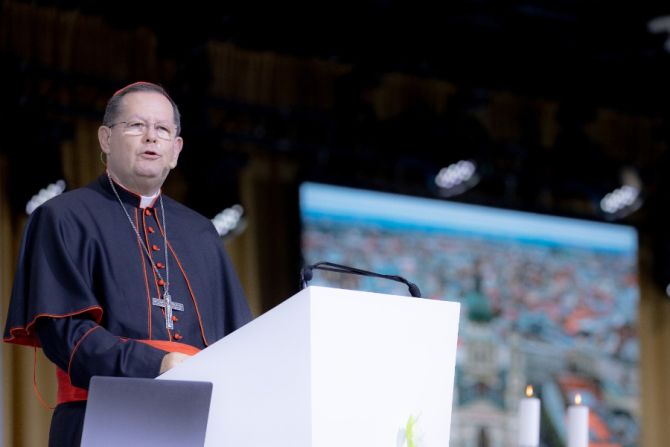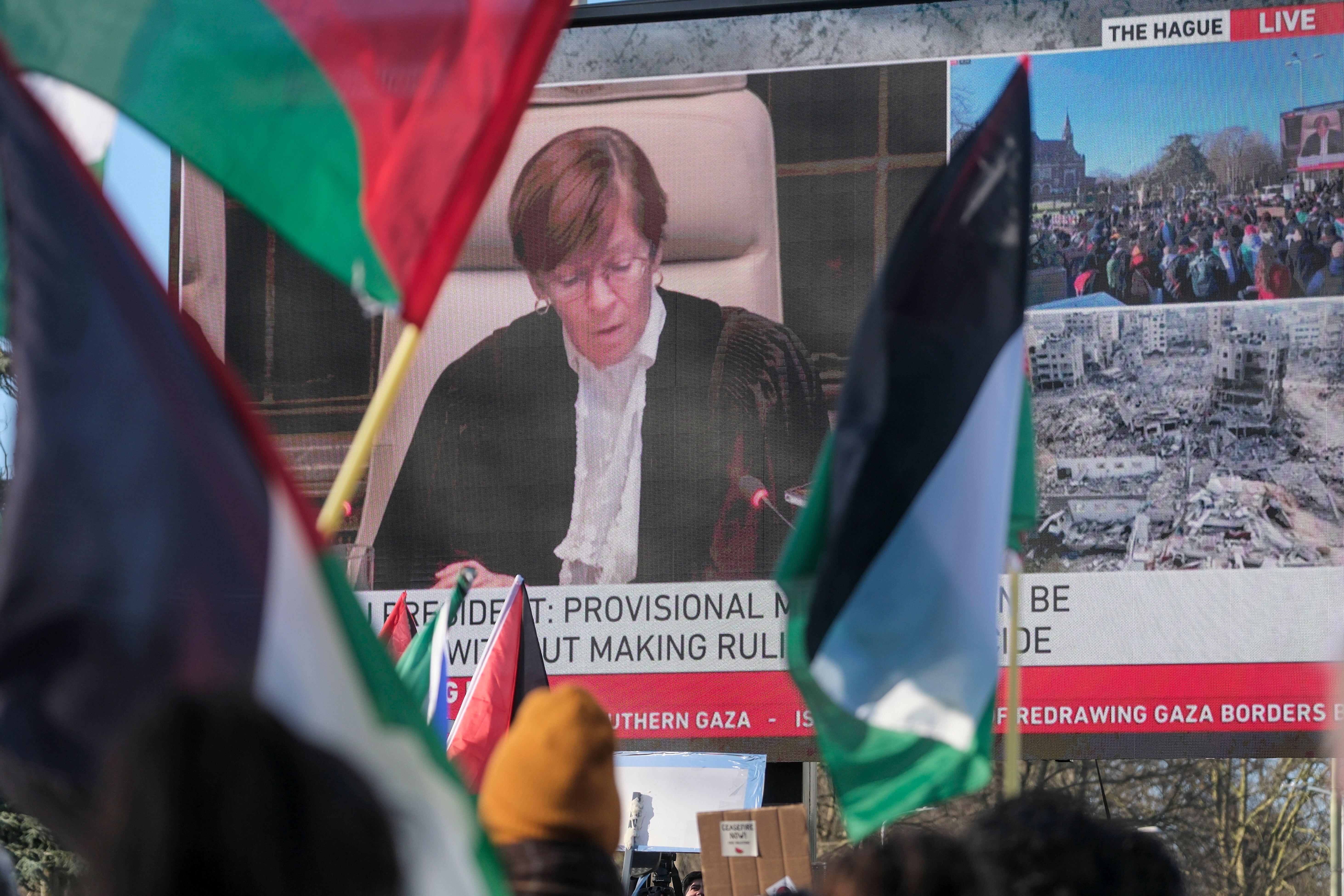Pope Francis said that “true peace remains distant” without two states in the Holy Land, as he again appealed for the warring parties in the region to “stop the bombs and missiles and end hostile attitudes”.
Speaking to the Italian daily La Stampa, the Pope said that he speaks by video call with the Holy Family Catholic parish in Gaza every day. He said the liberation of Israeli hostages was a priority.
He invited the world to pray for peace, expressing his belief that dialogue is the only path toward a peaceful future.
The Pope’s warning came amid threats of wider escalation, as militants backed by Iran conducted attacks across the Middle East. A drone strike on a base near Jordan’s border with Syria killed three US troops last week, prompting fears of retaliation.
On 26 January, the International Court of Justice in The Hague ordered immediate action to relieve the suffering of civilians in Gaza, following South Africa’s allegation of breaches of the Genocide Convention by Israel.
Though a verdict on the alleged genocide is not expected for years, the court made an interim ruling instructing Israel to prevent the death or injury of Palestinians and to take action to provide basic services and humanitarian assistance.
Speaking in Jerusalem after the interim ruling was announced, Benjamin Netanyahu said the genocide accusation was “not only false, it’s outrageous”. He said Israel would “continue this war until absolute victory”.
The Palestinian foreign ministry welcomed the ruling and called on all states to ensure that all provisional measures ordered by the court were implemented.
In Gaza’s southern city of Rafah, a group watching the ruling on television said they were pleased that the world was telling Israel that it crossed “lines of international law”.
More than 26,000 people have been killed in Gaza, since the Hamas attack on 7 October, about 70 per cent of them women and children, according to the territory’s Hamas-run health ministry.
Cafod said that the ICJ’s instructions regarding humanitarian access “must be urgently acted upon”.
“There are no safe spaces in Gaza and the current level of assistance is nowhere near enough,” said Janet Symes, the aid agency’s head of region for Asia and the Middle East.
Ms Symes told The Tablet that it was “impossible to protect civilians” during military operations in Gaza and only a “sustainable ceasefire” could create conditions for adequate humanitarian support. She said that Israel’s allies, including the UK, “now need to make sure they’re not complicit” in acts the ICJ could find to be genocidal.
Christian Aid echoed these sentiments in a statement, saying that “ultimately the suffering won't end until we have a permanent ceasefire”, while Pax Christi International said that “the call for a ceasefire in the Holy Land remains unanswered”.
Among other Catholic agencies, the umbrella organisation CIDSE welcomed the ICJ decision and called on the EU and the US to ensure that Israel respects its provisional measures. “Failing to do so would undermine a pillar of the rules-based international order,” it said.
Over the weekend, the UK was among a number of state donors to suspend funding for the United Nations Relief and Works Agency (UNRWA), after some of its staff in Gaza were alleged to have been involved in the 7 October attack.
The Foreign, Commonwealth and Development Office said it was “temporarily pausing any future funding” but remained “committed to getting humanitarian aid to the people in Gaza who desperately need it”.
Ms Symes said the pause was “worrying” and could become “a desperate issue if funding was halted long term” as UNRWA is much the largest provider of aid in the region. It was “disappointing that the [the UK government] have not been bolder in recognising its implications”, she said.
On Monday, 20 NGOs, including Caritas Internationalis, said it was “reckless” for some state donors to suspend donations to UNRWA.
They said in a statement: “The suspension of funding by donor states will impact life-saving assistance for over two million civilians, over half of whom are children, who rely on UNRWA aid in Gaza.”
They welcomed UNRWA’s investigation into the alleged involvement of several staff members in the Hamas attacks.
However, they added that with around one million displaced Palestinians taking shelter in or around 154 UNRWA shelters, “the countries suspending funds risk further depriving Palestinians in the region of essential food, water, medical assistance and supplies, education and protection”.
During the Week of Prayer for Christian Unity, the Churches of Jerusalem hosted prayers for peace in turn. Every day, ceremonies followed one another in the main Christian places of worship across the Old City, focusing on the Gospel of the Good Samaritan and the recitation of the Lord's Prayer.
“There was unanimous thanksgiving and tribute for the testimonies of faith, hope, and charity that Christians continue to give in the face of adversity, particularly in Gaza,” said one participant.
The UN last week deplored an attack on one of its shelters in Gaza, which is said showed “blatant disregard” for the rules of war. The shelter in Khan Yunis, housing 800 people, was hit by two tank rounds, killing nine and injuring 75.



 Loading ...
Loading ...